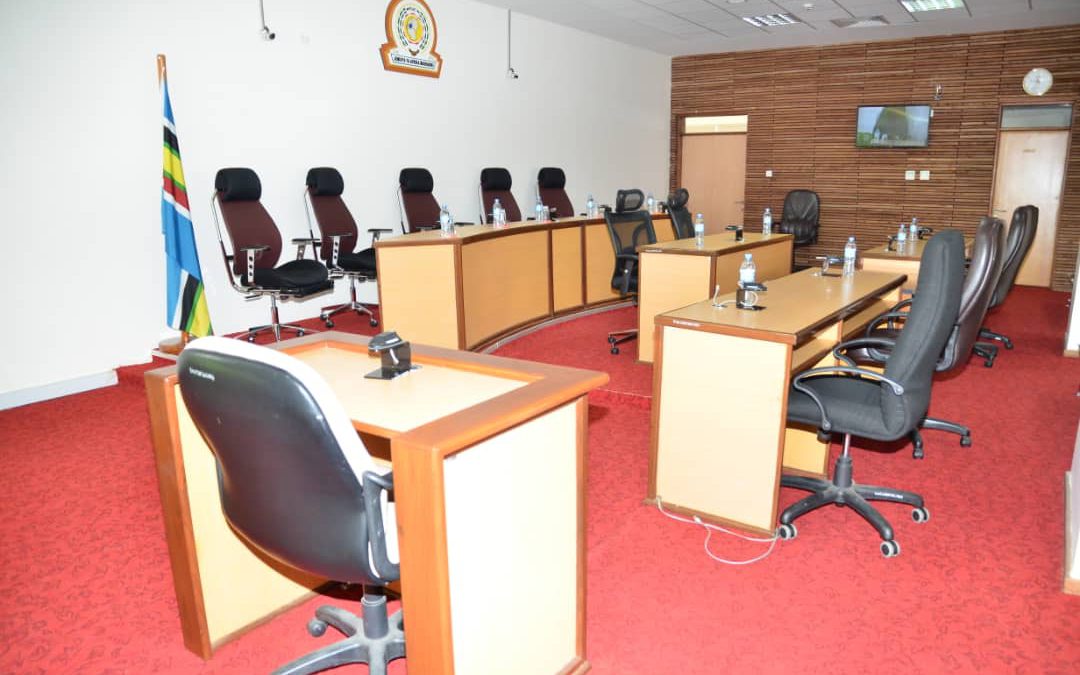East African Court of Justice, 27 April, 2020: The East African Court Justice (EACJ) through a video conference held an extra ordinary Plenary for Judges and resolved to roll out online hearings, delivery of Rulings and Judgments next month May, 2020, after test run.
The Plenary was chaired by the President of the Court, Hon Justice Dr Emmanuel Ugirashebuja. In his opening remarks the Judge President congratulated his fellow Judges for having accepted to go digital as a gateway for EACJ becoming an e-court.
The Agenda of the meeting was to discuss the Court’s mode of working during the COVID-19 pandemic, so as not to close the doors of justice to the residents of the Community. In March this year, Court suspended its sessions due to the Coronavirus pandemic outbreak in the region.
During the Plenary, the Court urged the Lawyers/ Litigants to file cases and serve documents online pursuant to the new East African Court of Justice Rules Rules 2019.
The Plenary resolved to roll out online virtual court sessions for delivery of justice on time. Virtual proceedings of the Court will is expected to start in May 2020.
The Court holds its Plenary twice a year, that is in June and November to plan and evaluate its performance.
In attendance were Judges of the Court for both Appellate and First Instance Division, Registrar and other Staff of the Court.
ENDS
For more information, please contact:
Yufnalis Okubo
Registrar
East African Court of Justice
Arusha, Tanzania
Tel: +255 27 2162149
mail: Okubo [at] eachq.org
www.eacj.org
About the East African Court of Justice:
The East African Court of Justice (EACJ or ‘the Court’), is one of the organs of the East African Community established under Article 9 of the Treaty for the Establishment of the East African Community. Established in November 2001, the Court’s major responsibility is to ensure the adherence to law in the interpretation and application of and compliance with the EAC Treaty.
Arusha is the temporary seat of the Court until the Summit determines its permanent seat. The Court’s sub-registries are located in the respective National Courts in the Partner States.

